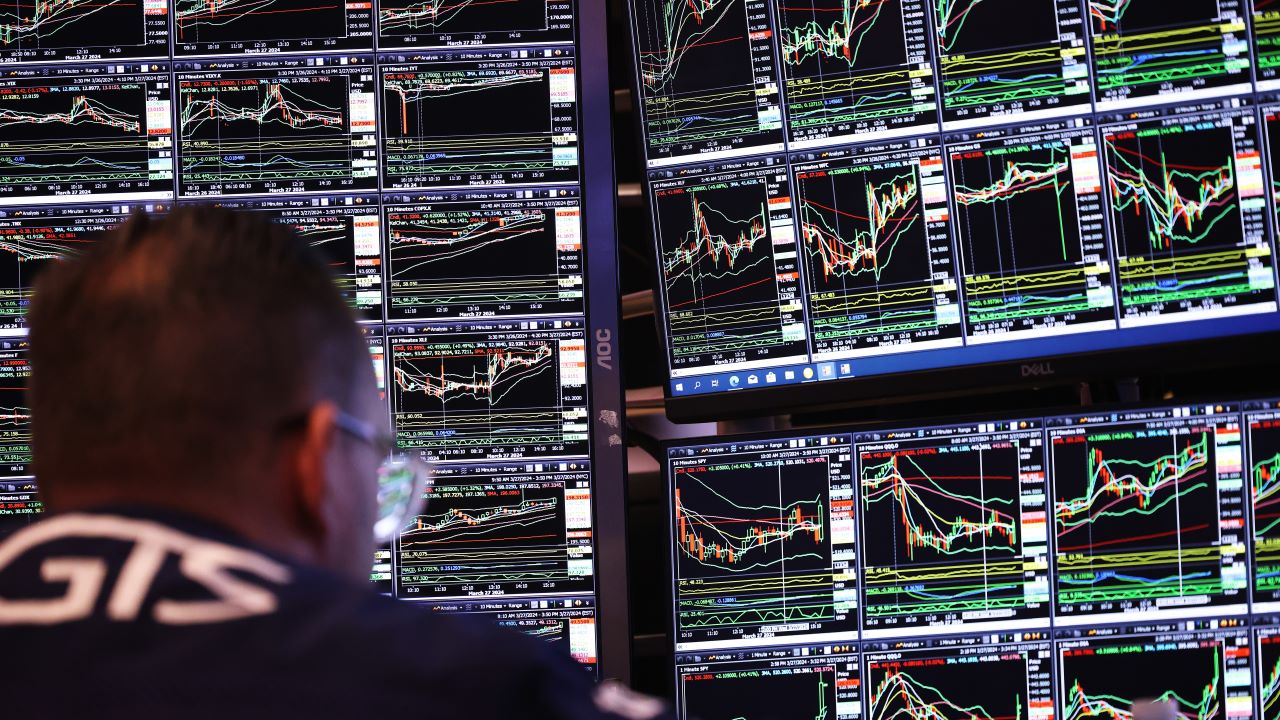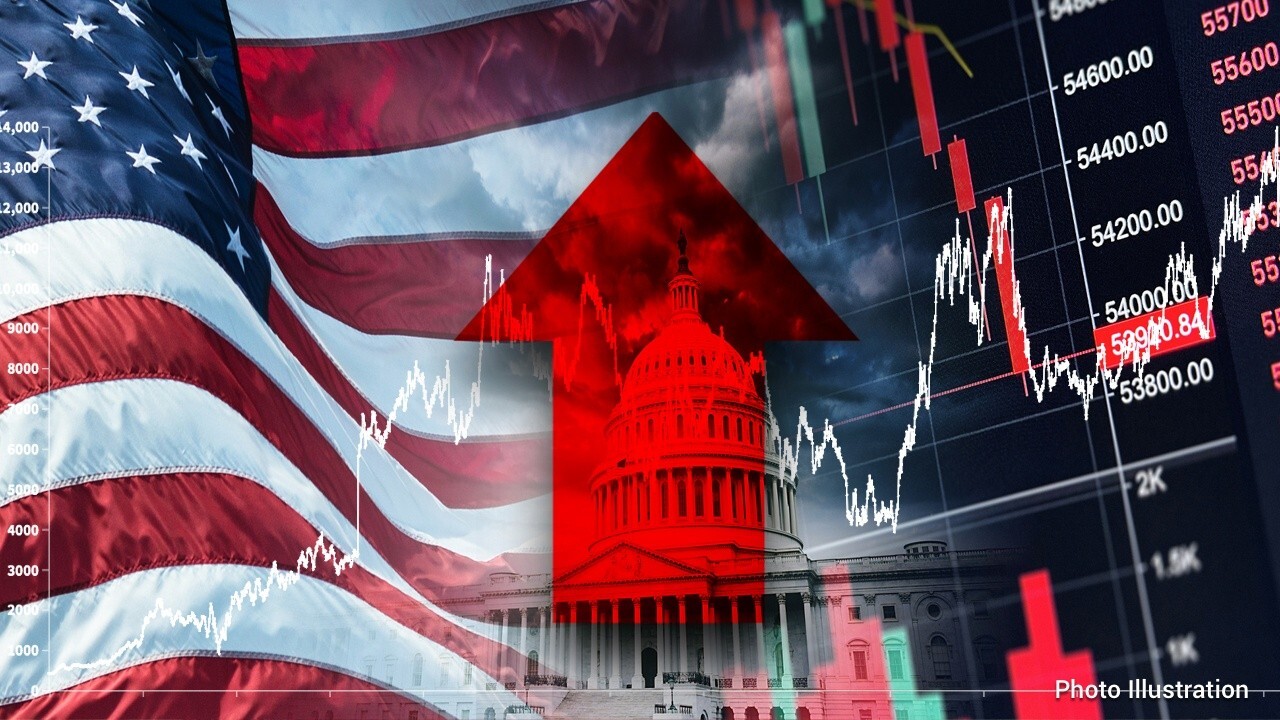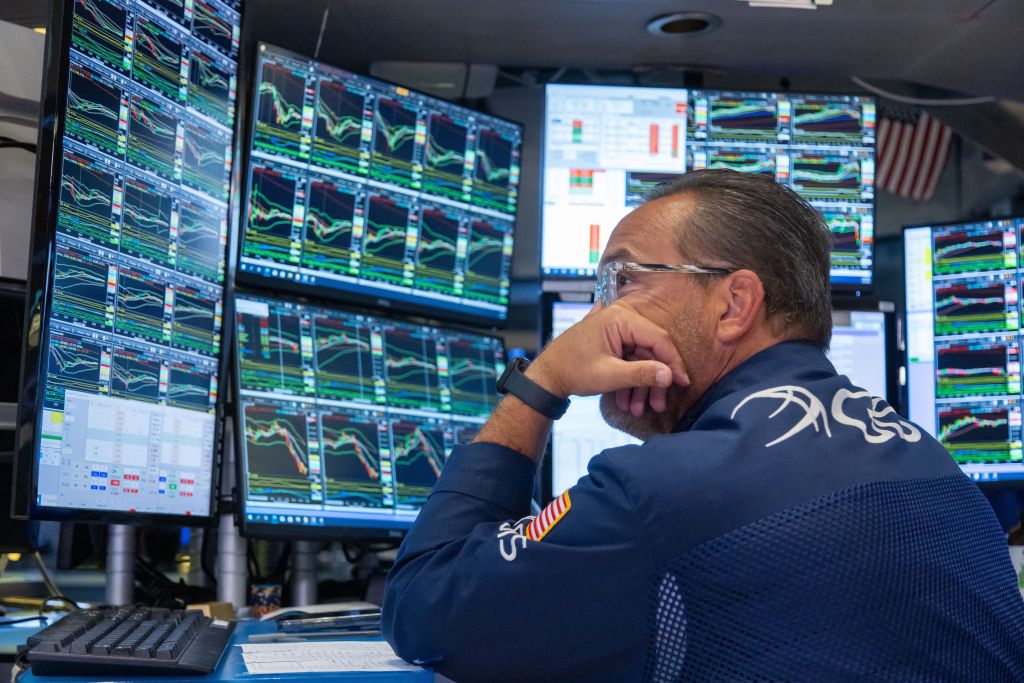How should you handle your 401(k) or IRA during market volatility?
Investors should stick to their long-term investment plans rather than deviating in response to market volatility like what has occurred in the last week, experts told FOX Business.

Financial markets have experienced historic volatility in recent days amid elevated uncertainty due to President Donald Trump's trade war with China and other countries, and experts say that investors should stick with their long-term plans and resist the urge to make snap decisions.
The Dow Jones Industrial Average experienced back-to-back swings of more than 2,000 points in consecutive trading sessions on Monday and Tuesday, with Monday's session setting a record for the largest intraday point swing.
With investors watching their 401(k), IRA or other brokerage accounts fluctuate wildly, experts suggest that they shouldn't panic and sell stocks or deviate from a long-term investing plan, and instead should continue with that plan because if the plan is well-diversified, the volatility will be beneficial over the long-run.
"If investors have a good plan in place, then they should stick to the plan," David Bahnsen, founder and managing partner of the Bahnsen Group, told FOX Business in an interview. "For example, if they have a stock market in their 401(k) or their retirement accounts, then that weighting in the stock market is supposed to take into account the fact that markets sometimes go down a lot."
"They don't do it a lot this quickly, this violently, but they do it," he added. "It happened after COVID, it happened after the financial crisis, it happened after 9/11. Every five to seven years you have one of these experiences, and they're really brutal for people, but they're part of why investors get a better return over time from being in the stock market."
Bahnsen explained that by reacting to turmoil in the market and making decisions based on volatility-induced panic, they risk reducing their long-term gains.
"What investors do to undermine their own return is panic out in these times, and what I think investors need to do is really remember that we don't know if this trade war is done in two hours, two weeks, or two months — what we do know is it will be over," Bahnsen explained. "This market violence may already be near the end, it may have a lot further to go, but it will be over."
GEN Z OUTPACES OLDER GENERATIONS WITH EARLIER JUMP INTO INVESTING: REPORT
Bahnsen added that investors who are contributing to their 401(k) accounts or are reinvesting dividends during volatile downturns are improving their portfolio over the long-term by buying stocks at relatively low prices.
"It's one of the big reasons that I built a $7.5 billion business as a dividend growth investor, because dividends reinvesting during volatile down times help your portfolio – you're picking up more shares at lower prices," he explained. "So if people are adding to their 401(k) every two weeks, if people are reinvesting dividends, their portfolio is getting better as things are going down, not worse. And that isn't just a reverse psychology thing, it's real math, it's really how this works."
RETIREMENT PLANNING: THE DIFFERENCES BETWEEN A TRADITIONAL AND ROTH IRA
Christopher McMahon, president and CEO of Aquinas Wealth Advisors, emphasized in an interview with FOX Business that investors should periodically go through the process of evaluating their investments for their risk tolerance, age and retirement plans then making any rebalancing decisions as part of a structured process — rather than trying to do so in the midst of market volatility.
"Develop an asset allocation model, stick to it, and then every 18 months at most, and if you're getting close to retirement and you're in your late 50s or 60s, every 12 months at most you should be reevaluating that risk profile," he said.
GET FOX BUSINESS ON THE GO BY CLICKING HERE
McMahon also noted the market's historical recovery period from significant downturns are relatively quick in the context of a long-term retirement plan, making it all the more important for investors to remember that there will eventually be a bounceback.
"The average recovery time from a 10% downturn has been three months. The average recovery time from a 20% adjustment is eight months. Now, it may not happen this time, but it will certainly recover," he added.
What's Your Reaction?




















































































